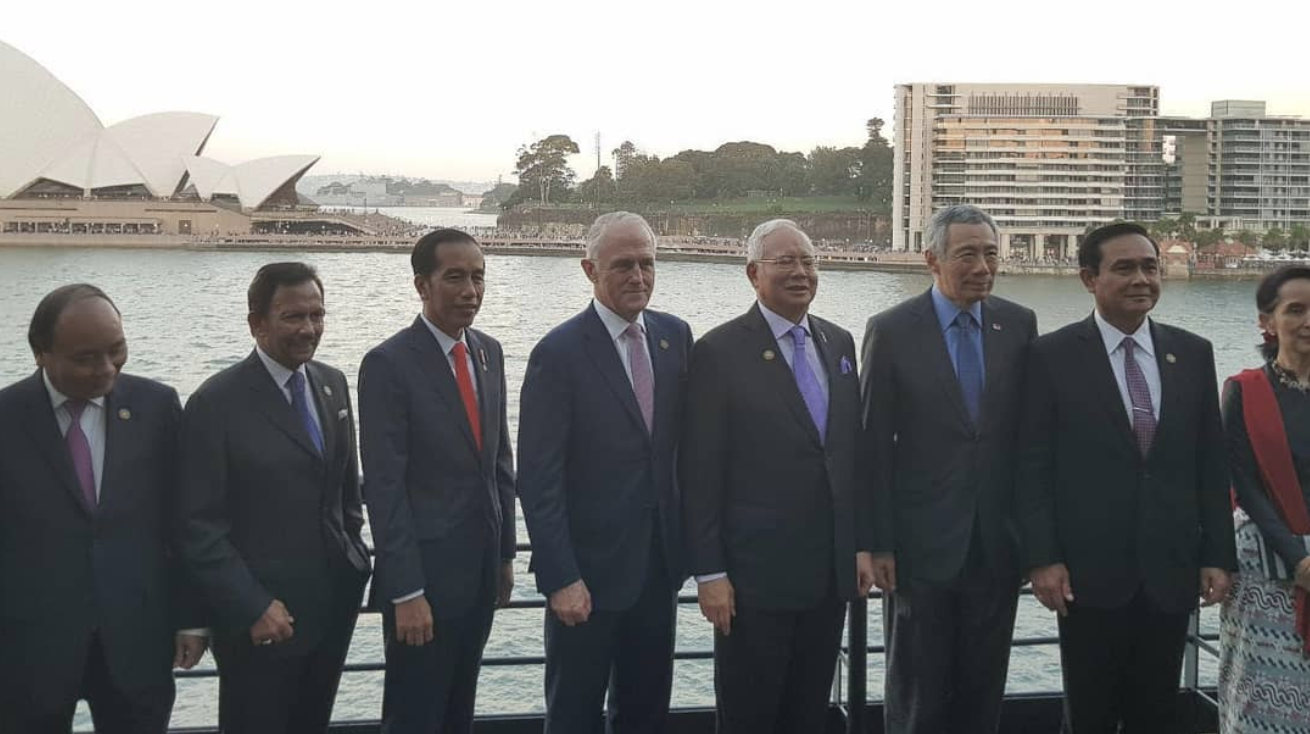Indonesia is one of the largest, most populous countries in the world, with over 260 million people and over 17,000 islands.
Usually, such huge countries have an outsize influence on global affairs.
But one man makes the case that instead of throwing his weight around on the international stage, President Joko "Jokowi" Widodo conducts his foreign policy with the domestic audience first in mind.
Pragmatism first
Meidyatama Suryodiningrat, known as Dymas, spoke at the ISEAS-Yusof Ishak Institute on Oct. 5 on President Joko Widodo's international lens.
Dymas, the current President Director of Indonesia's national news agency, LKBN Antara, made the point that the country's foreign policy can be traced back to a speech made by former Vice-President Mohammad Hatta in 1948.
"Indonesian foreign policy should be conducted pragmatically, executed in consonance with the situations and facts it has to face."
One eye on the election
Dymas pointed out the elephant in the room, the Indonesian presidential election in 2019. He said:
"Foreign policy will be perceived in the singular lens of the election."
He believes that no matter who wins, 2019 will be a transition year. Either a new man wins, or the current Administration will undergo a reshuffle.
However, until then, everything, including foreign affairs, will be viewed as a potential impact to domestic politics and therefore the election.
Dymas listed three topics that could be major voting issues in an Indonesian election:
- Islam
- Migrant workers
- Terrorism
And in Dymas's opinion, of the three, Islam is the biggest issue for Indonesia's voters.
[related_story]
Islamic leader on the world stage
President Widodo has been a strong voice on Islamic affairs in the international arena.
He has has spoken publicly about the Rohingya crisis in Myanmar, between the Buddhist majority and the Muslim minority population.
In April 2018, during the ASEAN summit in Singapore, President Widodo held a bilateral meeting with Myanmar's President Win Myint, and expressed concern over the ongoing crisis. He said:
"Indonesia only has one interest, namely to see a stable and peaceful Rakhine, where people, including the Muslims, can live in peace."
Back in Dec. 2017, following the U.S. decision to recognise Jerusalem as the capital of Israel, President Widodo attended the emergency summit of the Organisation of Islamic Cooperation (OIC) held in Istanbul, Turkey.
During the summit, he outlined a six-point proposal for the OIC.
It called on countries with embassies in Tel Aviv not to move them to Jerusalem, and also invited OIC members to to boost humanitarian aid and economic cooperation for Palestine, as Indonesia has pledged.
Sending a strong message
Although the election is the biggest issue going forward, Dymas pointed out that traditionally, the direction of Indonesia's foreign policy has been shared between the President, the foreign ministry, and the military.
This may have led to a lack of focus for the long-term.
But in the short-term, a strong President could seize the initiative, like what President Widodo did during the Natuna Sea incident.
An island archipelago bordering the South China Sea, the region became a hotbed of controversy in 2016.
Chinese and Indonesian vessels had been "facing-off" in the resource-rich area. Instead of a more conciliatory approach, President Widodo chose instead to visit the island chain with his chief security minister, military chief and foreign minister.
He also chaired a Cabinet meeting on board an Indonesian warship and called on the military to step up its patrols in the area. Said Dymas:
"Look at the quiet, firm way that this Administration has approached the Natuna issue."
He made the point that holding a Cabinet meeting on a warship was a strong message for China.
However, it also sent a message to the Indonesian public that President Widodo would defend Indonesia's interests.
Warm relations between China and Indonesia's leaders
Dymas touched briefly on the relationship between China and Indonesia.
Despite their competing maritime claims, he believes that President Widodo actually has a good, warm personal relationship with Chinese leaders.
The President has made several trips to China, including in 2016 and 2017, while Chinese Prime Minister Le Keqiang visited Indonesia in 2018.
President Widodo also has met with President Xi Jinping on numerous occasions.
Dymas believes that size does matter when it comes to Chinese perceptions of the ASEAN nations. Indonesia, as the biggest country in Southeast Asia, deserves to be treated differently by China.
Also, proximity does matter. Indonesia is relatively far away from China, and the Natuna Sea aside, it has few other territorial claims that could result in contention between the two countries.
While tensions between Chinese migrant workers and Indonesians are still simmering, Dymas feels that both China and Indonesia have a good working relationship to surmount most difficulties.
However, that could all change if a new man wins the election in 2019.
Related story:
Top image from President Joko Widodo's Instagram page.
If you like what you read, follow us on Facebook, Instagram, Twitter and Telegram to get the latest updates.
